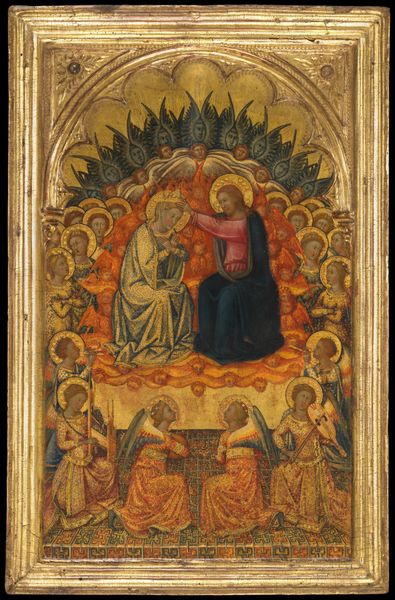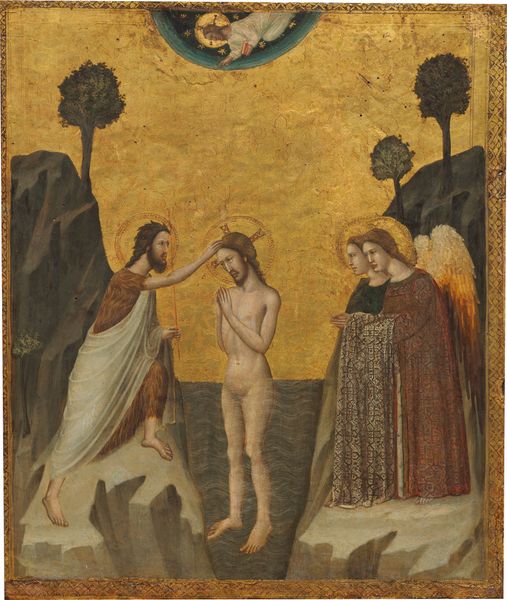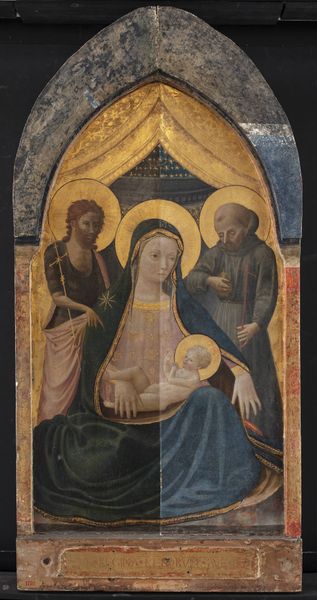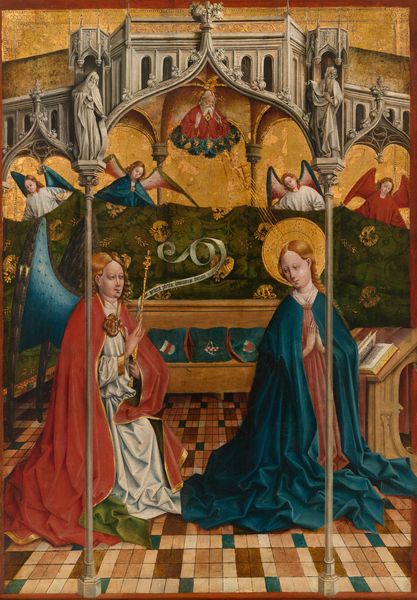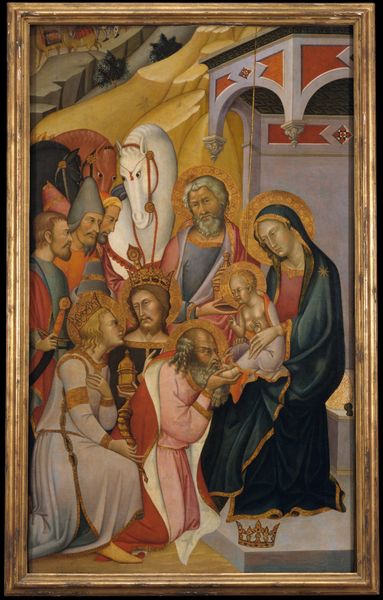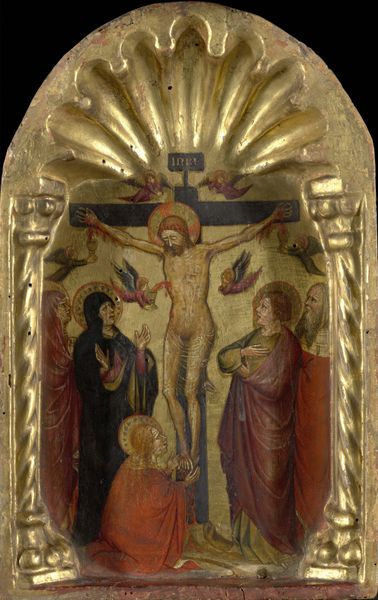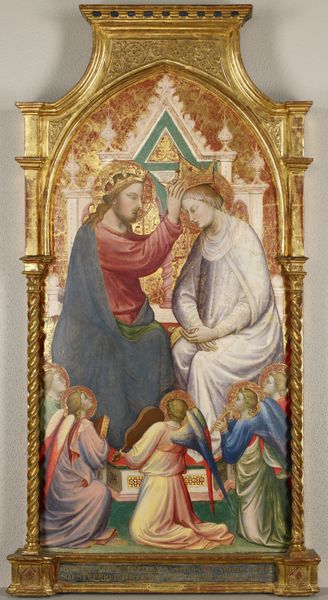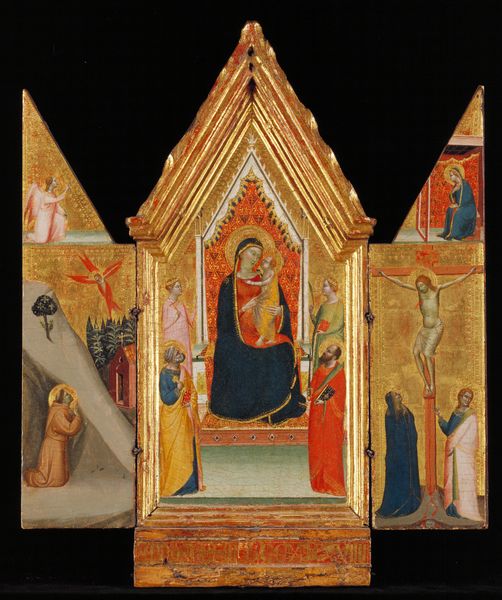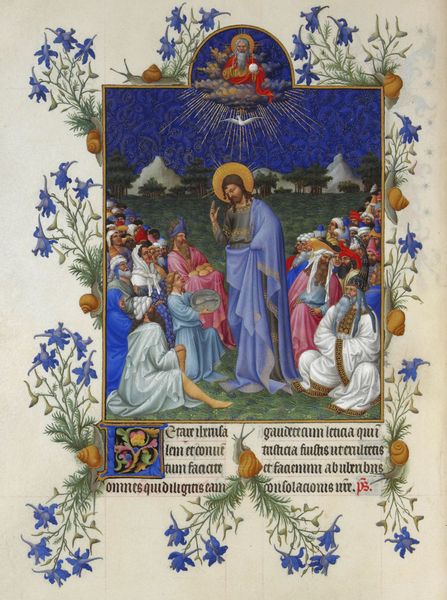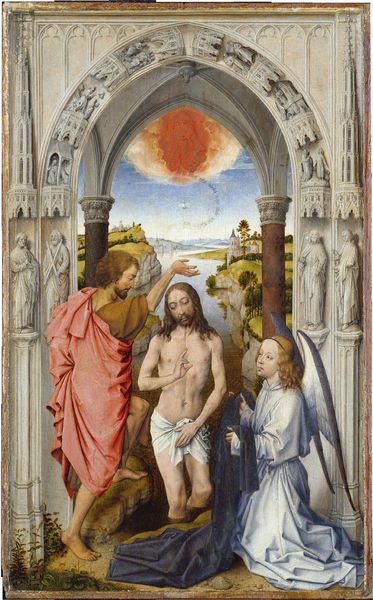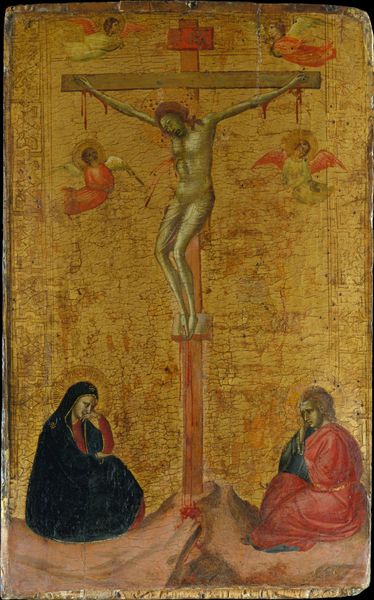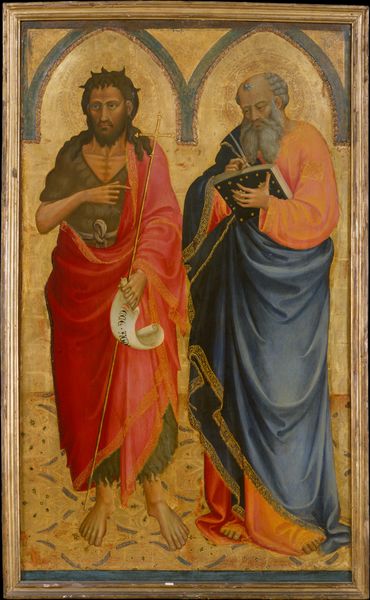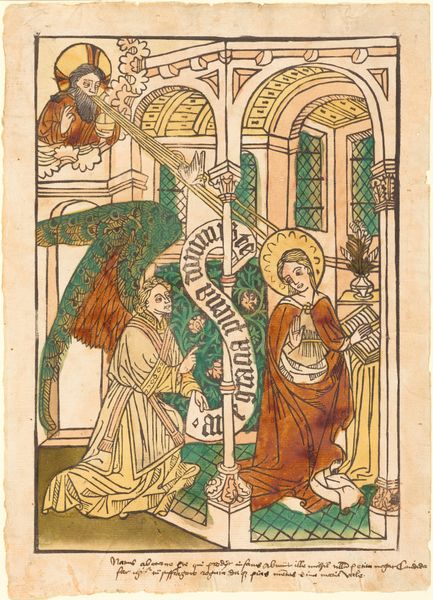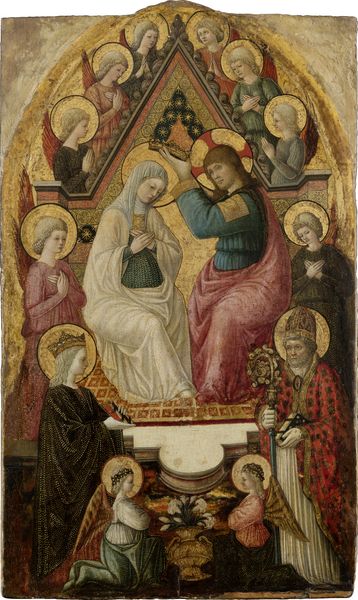
tempera, painting
#
portrait
#
tempera
#
painting
#
gothic
#
oil painting
#
history-painting
#
italian-renaissance
#
portrait art
#
virgin-mary
#
christ
Dimensions: Overall: 94 1/4 x 60 1/4 x 1 in. (239.4 x 153 x 2.5 cm)
Copyright: Public Domain
Lorenzo Monaco made this panel painting, “The Intercession of Christ and the Virgin,” sometime in the early 1400s, using tempera on wood, with gold leaf adding a heavenly sheen. Tempera is an age-old technique, using egg yolk as a binder for pigments. This creates a fast-drying paint, which allowed Monaco to build up thin, luminous layers, defining forms with crisp lines and flat, bright colors. The smooth surface, almost enamel-like, is characteristic of tempera. Applied to a wood panel, it provided a stable base for the complex imagery. Then, the gilding wasn't just for decoration. Gold leaf was painstakingly applied to create radiant halos and highlight divine light. Consider the social context: materials like gold and pigments weren't just artistic choices, but economic ones. They reflect the wealth of the patron, the skill of the artist, and the value placed on religious imagery in Renaissance society. So, next time you see a Medieval painting, remember it’s not just an image, it’s a product of skilled labor, precious materials, and deep-seated cultural beliefs.
Comments
No comments
Be the first to comment and join the conversation on the ultimate creative platform.
